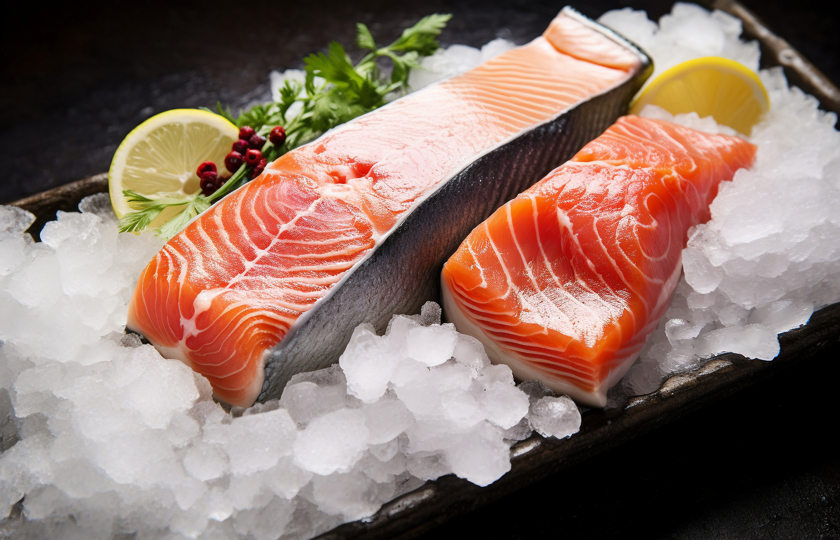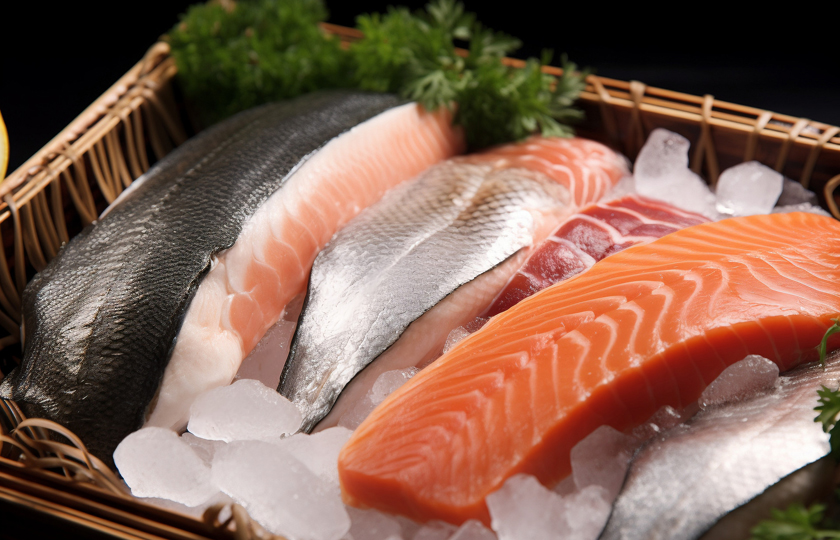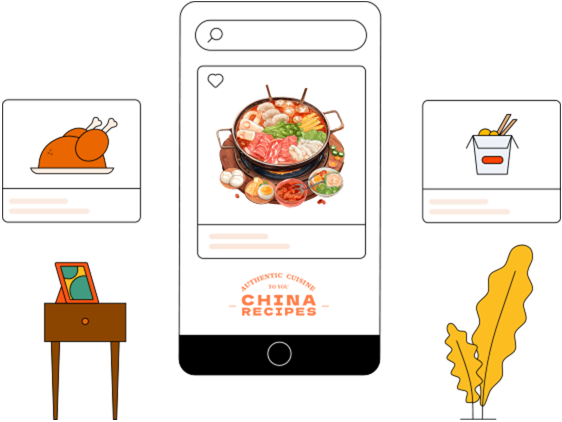Freshness Guide: How Long Is Cooked Salmon Good to Keep in the Fridge

Cooked salmon is not only delicious but also packed with nutrients. However, understanding the optimal storage time for cooked salmon in the refrigerator is crucial. Have you ever wondered how long cooked salmon can last in the fridge? This question is important not only for food safety but also for maintaining flavor and texture. Let’s delve into this topic in detail.
How Long Is Cooked Salmon Good in the Fridge?
Salmon is a deep-sea fish rich in omega-3 fatty acids, known for its delicious flavor and health benefits. However, the storage time for cooked salmon in the refrigerator is an important consideration.
The shelf life of cooked salmon primarily depends on the storage method and the refrigerator's temperature. Generally speaking:
Refrigerator Storage: If cooked salmon is placed in a sealed container and stored in the refrigerator (at a temperature below 4°C or 39°F), it can typically last for 3 to 4 days. This storage method effectively slows bacterial growth and maintains the freshness of the fish.
Freezer Storage: For longer storage, cooked salmon can be placed in sealed bags and stored in the freezer. Under these conditions, it can last up to 2 to 3 months. Freezing significantly extends shelf life, but it's important to consume it quickly after thawing to ensure the best flavor and texture.
Important Tips:
Avoid Cross-Contamination: When storing cooked salmon, use clean containers and keep it separate from raw foods to prevent cross-contamination.
Check for Spoilage: Before consuming, inspect the salmon for any off-putting odors, discoloration, or slimy textures—these are signs of spoilage. If any of these symptoms are present, discard the salmon immediately.
How long does leftover salmon last?
The storage time for leftover salmon primarily depends on the method of preservation and its condition.
For fresh, uncooked salmon, if stored in the refrigerator (at a temperature between 1-4°C or 34-39°F), it can generally last for 1 to 2 days. If you want to extend its shelf life, you can place it in the freezer (at a temperature below -18°C or 0°F), where it can be stored for several months, although its texture and nutritional value may decrease.
For cooked salmon, in refrigerated conditions (around 4°C or 39°F), it can last about 2 to 3 days. In the freezer (at -18°C or lower), it can be kept for several months as well. However, similarly to uncooked salmon, the quality and nutritional value may not be as good as when it is fresh.
When storing either fresh or cooked salmon, make sure to use clean containers or plastic wrap to seal it, preventing bacterial contamination and odor absorption. It's also important to consume it as soon as possible to maintain its taste and nutritional value.
Important Tips:
Avoid Cross-Contamination: When storing cooked salmon, ensure you use clean containers and keep it separate from raw foods to prevent cross-contamination.
Check for Spoilage: Before eating, inspect the salmon for any off-putting odors, discoloration, or a slimy texture—these are signs of spoilage. If you notice any of these symptoms, discard the salmon immediately.
Can I eat salmon 5 days after cooked?
Whether you can eat cooked salmon after 5 days depends on how it was stored.
According to food safety guidelines, cooked salmon can generally be refrigerated for 3 to 4 days. If the salmon was stored in the refrigerator, it is not recommended to eat it after 5 days, as it has exceeded the safe storage period, potentially leading to food poisoning with symptoms like nausea, vomiting, or diarrhea.
If the salmon was frozen, it can be kept in the freezer for up to 2 to 3 months. In this case, it may still be safe to eat after 5 days, but you should thoroughly check for any off odors, discoloration, or a slimy texture, which are signs of spoilage. If you notice any abnormalities, discard the salmon immediately.
Important Tips:
To ensure food safety and the best taste, it's advisable to consume salmon as soon as possible after cooking and to use proper storage methods. If you need to extend its shelf life, opt for freezing and carefully check the salmon's condition before eating.
Can I eat salmon that was cooked 4 days ago?
If the cooked salmon has been stored in the refrigerator, it is generally not recommended to eat it after 4 days. However, if the salmon was frozen and properly thawed, it can be safe to eat.
Refrigerated Salmon: When cooked salmon is kept in the refrigerator, bacteria and other microorganisms can continue to grow slowly. Salmon is rich in protein and unsaturated fatty acids, and these nutrients may have degraded after 4 days due to microbial activity and its own enzymes. Spoiled salmon can emit an unpleasant odor, and its texture may become soft or slimy, increasing the risk of food poisoning, which can cause symptoms like vomiting and diarrhea.
Frozen Salmon: If the cooked salmon was placed in the freezer immediately after cooking and stored at around -18°C (0°F), it can still be safe to eat after 4 days. Freezing effectively inhibits the growth of microorganisms and the activity of enzymes. However, the texture of thawed salmon may be slightly different, potentially becoming a bit dry or tough. It is recommended to thaw the salmon thoroughly before eating, preferably by placing it in the refrigerator for a gradual defrosting to retain its flavor and nutritional value.
How long can raw salmon be stored in the refrigerator?
The storage time for raw salmon in the refrigerator mainly depends on the method of storage and temperature. Here are the details:

Storage Time
Refrigerated Storage: If raw salmon is kept in a sealed container and stored in the refrigerator (with a temperature of 4°C or below), it can generally be stored for 1 to 2 days.
Frozen Storage: For longer storage, raw salmon can be portioned into sealed bags and placed in the freezer. Under these conditions, salmon can be stored for up to 2 to 4 months.
Storage Methods
Refrigerated Storage: Ensure the raw salmon is in a sealed container and stored in the refrigerator, avoiding contact with other foods.
Frozen Storage: Divide the raw salmon into sealed bags, removing as much air as possible, and then place it in the freezer.
Important Notes
Avoid Cross-Contamination: When storing raw salmon, use clean containers and keep it separate from other raw foods to prevent cross-contamination.
Check for Spoilage: Before consuming, check the salmon for any off odors, discoloration, or a slimy texture—these are signs of spoilage. If any of these symptoms are present, discard the salmon immediately and do not consume it.
How do you know if cooked salmon has gone bad?
You can determine if salmon has spoiled using the following methods:
1. Appearance
Color Change:
Freshly cooked salmon should have a light pink or orange color. If you notice grayish-white, dark green, or black spots on the surface, this may indicate spoilage due to bacteria or mold growth. Additionally, if the salmon's flesh appears dull and has lost its original color, this could be a sign of fat oxidation or protein breakdown.
Texture Change:
Freshly cooked salmon should be firm and resilient when touched with chopsticks or a fork. If the flesh has become mushy, slimy, or falls apart easily, it is likely spoiled. This texture change is often due to microbial breakdown of proteins and other tissue components. Look out for a slimy layer on the surface; this indicates microbial growth and suggests the salmon is no longer fresh.
2. Smell
Normal Aroma:
Freshly cooked salmon typically emits a mild fishy scent, possibly accompanied by aromas from seasonings used during cooking, such as lemon or herbs.
Off Odors:
If the salmon has spoiled, it will emit a strong sour or rotten smell. This is caused by bacteria breaking down proteins and fats, producing compounds like hydrogen sulfide and ammonia that have pungent odors. Sometimes, this smell may be faint, requiring you to lean in closer to detect it, so be particularly attentive.
3. Taste
Normal Flavor:
Freshly cooked salmon should taste tender, juicy, and flavorful, with a pleasant natural texture.
Off Flavor:
Spoiled salmon will have an unpleasant taste, which may be bitter, sour, or gritty. The texture may feel loose and coarse, indicating that the fish's cellular structure has been damaged. Consuming spoiled salmon can cause discomfort in the mouth.























